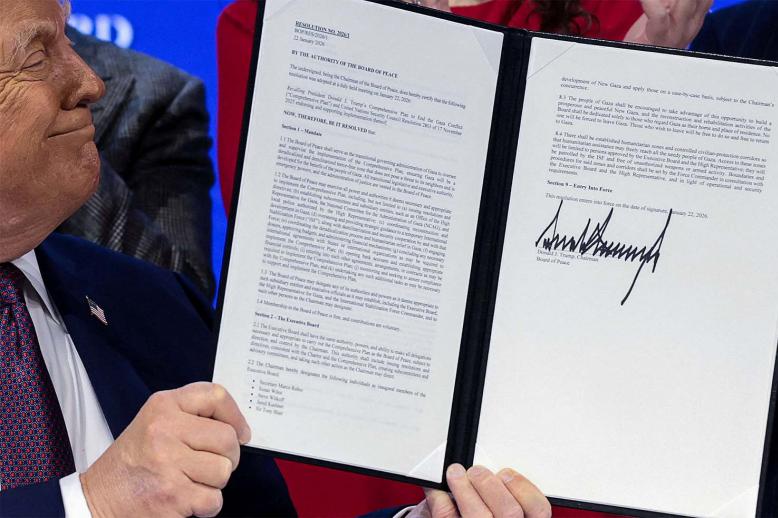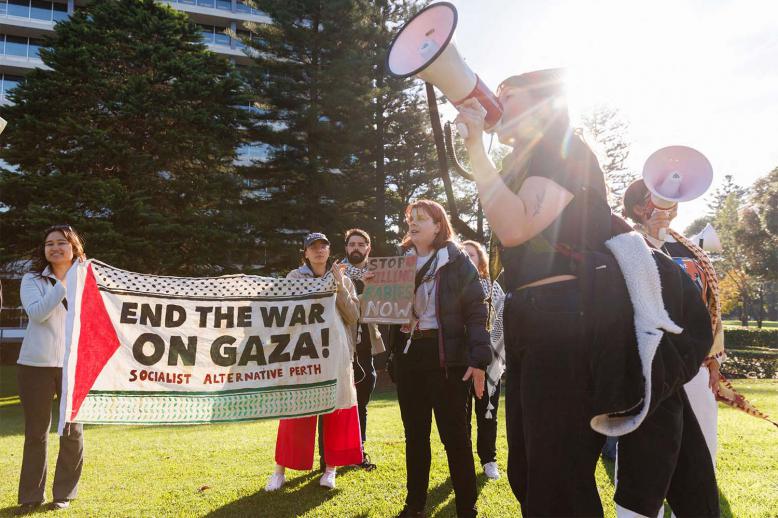Kuwait’s other war
No one in Kuwait is fond of the shouting matches tactic in approaching political affairs. Even those who have been convicted and exiled are lobbying discreetly to get special amnesty. Many of them, who previously voiced the most extreme positions against the government, are asking fellow deputies and politicians to tone down their political bidding so as not to hurt their quest for a special amnesty.
The politics of “raised voice” is, however, making a strong comeback in Kuwait, coming this time from the top of the pyramid and in a novel way.
Kuwaiti Emir Sheikh Sabah Ahmad al-Jaber al-Sabah has revived Kuwait’s war on corruption with new weapons consisting of a set of overt public statements and positions.
Notably, during a ceremony of presenting Sheikh Sabah with the annual report of the Kuwaiti State Audit Bureau, the emir focused questions on infractions more than on the achievements reported. Also, at every meeting with the prime minister or any other minister, Sheikh Sabah never fails to stress the need to implement accountability at the highest levels and for state officials and leaders to be accountable for any complacency or laxity.
The “loud voice” was heard again when Sheikh Sabah sought to send messages, both internally and externally, concerning the protective shield of the Kuwaiti experience — freedom and human rights.
When Sheikh Sabah received the president and members of the National Bureau for Human Rights, he instructed them to work freely, without regard to any guardianship or pressure and to dedicate themselves to the reinforcement of freedoms and human rights in Kuwait.
That day, Sheikh Sabah made sure that his words were televised live, especially when he told the visiting delegation: “We do not want you to be hidden inside our pockets. We want you to be free but at the same time do not forget that this is your country. You are responsible as much as I am.”
As it reaffirms the importance of protecting freedoms and human rights, Kuwait is waging an internal war against corruption and excesses to complement the external war it is fighting to achieve stability and relieve the region from crises and tensions. It is remarkable that in Kuwait one can read about 360 university graduates taken to court for using fake or suspect diplomas or hear a minister say that an error cost the public treasury tens of millions of dollars!
Many other changes are going on in Kuwait but they are guided and disciplined by strong institutions on the one hand and by fear from the turbulent situation in the region on the other. Such discipline is what Sheikh Sabah asked for when he met with Speaker of Kuwait’s National Assembly Marzouq al-Ghanim and other representatives. He urged them to pay close attention to what is happening in the region and to shield the country from potential shocks or tremors.
The situation in Kuwait had to be contained. The opposition, including the extreme opposition more than all others, understands the delicate situation in the region and the importance of developments in neighbouring countries.
One can finally speak of political maturity in the country. Kuwait has matured at all levels at a time the United States is imposing new sanctions package on Iran. It is no longer a secret that Sheikh Sabah has informed parliament members that the post-sanctions era will be different from the times preceding it.
Kuwait finds itself in a position in which everyone must fortify the country’s internal situation. It is not just about how Iran would react to the sanctions. There is also the unstable situation in southern Iraq, specifically in Basra, which is not far from Kuwait.
The situation in Basra, which has relatively subsided, seems likely to explode in a way that will be difficult to control, especially because there is no indication that the new government formed by Adel Abdul-Mahdi is willing to pay attention to the problems of the neglected people of the city.
In short, there seems to be another war going on in Kuwait, quite different from military campaigns. That war is called fortifying Kuwait’s internal stability. Fortunately for Kuwait, there is a national awareness regarding the necessity of that effort. The opening session of the National Assembly remarkably passed quietly, except for the speech by Sheikh Sabah, which included several warnings.
Sheikh Sabah is taking action but in his own way. He is relying on soft power, no more and no less. This quiet force is what is most suitable in the context of brewing storms in more than one zone in the Gulf and the Middle East.
Khairallah Khairallah is a Lebanese writer.
This article was originally published in The Arab Weekly.







